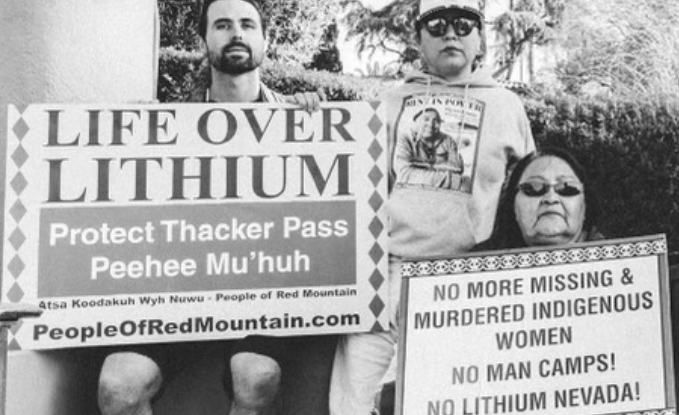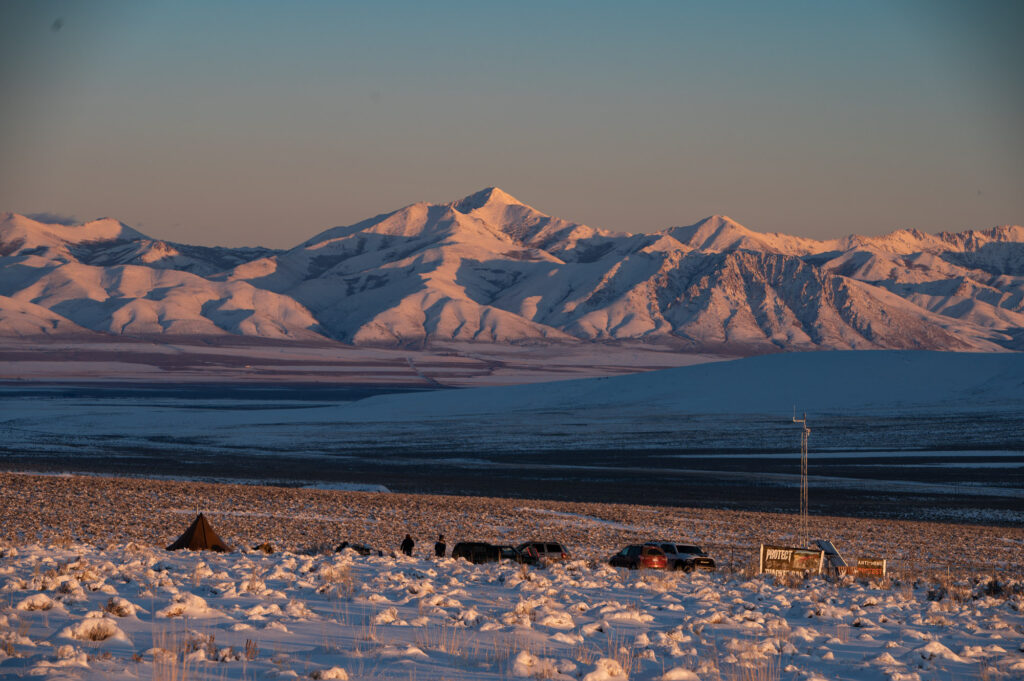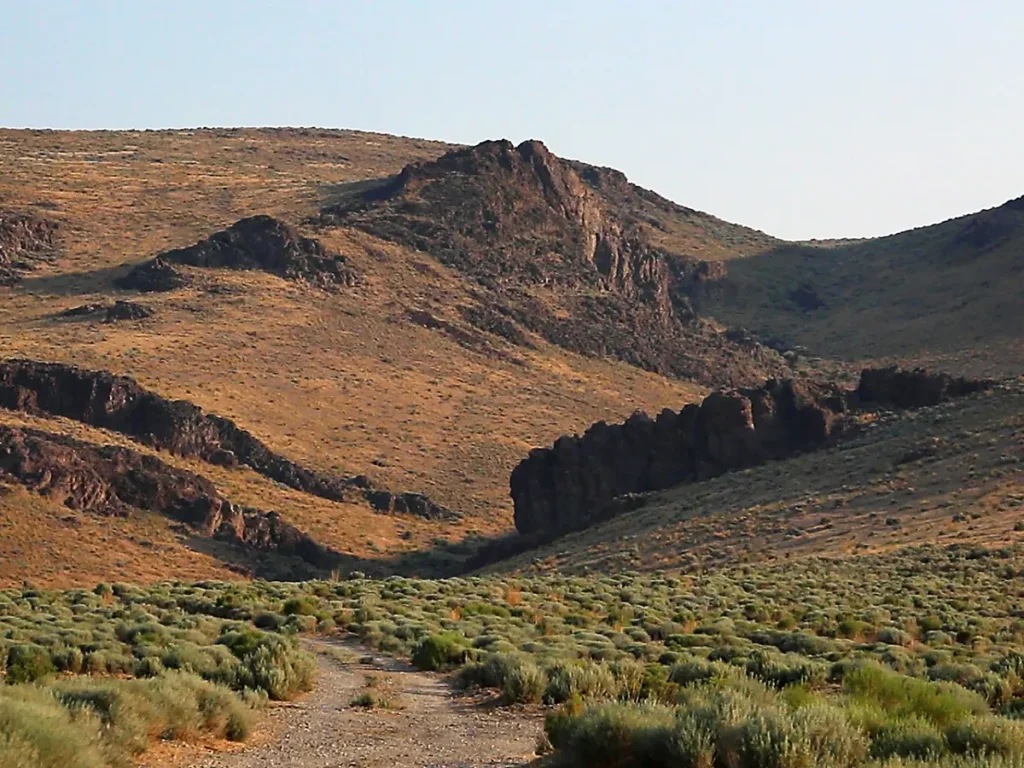
Lithium is an essential metal in the manufacture of computers, smartphones and, above all, electric car batteries. Demand is exploding as sales of electric vehicles continue to rise (on average, a battery contains 10 kg of lithium). Australia is the world's leading producer, accounting for half of all lithium extraction. It is followed by Chile (25 %), China (16 %) and Argentina (7 %).
One of the largest lithium deposits in the United States has been discovered beneath the historic sites of the Paiute-Shoshone tribes in Nevada. The mining company Lithium Americas plans to exploit this deposit, which is estimated to have a net value of 5.7 billion dollars after tax. Native people, ranchers and indigenous peoples in the region have joined forces to oppose the project, which they describe as an aberration that will destroy a cultural site. They succeeded in delaying the work, which was due to start in 2021, and then set up camps to protect this unspoilt territory, only to be dislodged by the police last June. Unfortunately, the earthworks began in the summer of 2023.
A legal battle in progress

"Since this event, seven opponents have been prosecuted by the mining company, reveals the website www.ici.radio-canada.ca. For their part, a cattle farmer, four environmental groups and two other indigenous communities have taken legal action. The aboriginals and environmental protection groups want the licence issued to Lithium Americas for its project to be cancelled outright. The aboriginal communities of Reno-Sparks, Burns Paiute and Summit Lake Paiute have taken their own legal action. "The Bureau of Land Management, which is responsible for issuing permits, has not even consulted them. Only the nearest tribe, Fort McDermitt, was consulted, and "signed a community benefits agreement with the Fort McDermitt Paiute-Shoshone Tribe", the company defends itself. If it is partly in favour of the project, it is because it hopes to earn royalties from it. But within the community, there are also voices against the work.
The project is located around 500 kilometres north of Reno, on the Thacker Pass site, quite a distance from where the indigenous people live. But for Michon Eben, head of the Culture and Resources Programme and the Tribal Historic Preservation Office, and a member of the Reno-Sparks community : "Just because it's a long way from where we live now doesn't mean it doesn't represent who we are. That's forgetting the vast territory occupied by the indigenous nations of Nevada and neighbouring states before the settlers arrived."
Desecration of a sacred site
Thacker Pass is a sacred site, called Peehee Mu'huhen by the Paiutes, which is being sacrificed in the name of energy transition. It is also a burial site. In September 1865, a massacre was perpetrated on these lands. More than thirty people (men, women and children) from the Paiute Nation were killed by American federal soldiers. This historic event seems to have been ignored and then denied by the project's defenders, even though it is here that many of the ancestors of these natives are buried. "We can't annihilate a culture, an ecosystem, or dry up our water sources just so a few rich people can have an electric car", says Michon Eben.
In addition, local people and environmentalists agree that electric cars are a lie: "We have to explain to people that electric cars are not going to save the planet from the climate crisis. Especially as this mine also presents "a risk for the entire ecosystem of the sector", according to Ms Eben. "Lithium mines require an enormous amount of water, and Nevada is one of the driest states in the United States", she adds. Lithium does not exist in its native state in nature. So it has to be extracted from rocks, clay or brine. It is then recovered and refined in a plant using chemical treatments. These processes, which consume a lot of energy and water, produce lithium carbonate, which is used by industry. (According to the https://culturesciences.chimie.ens.fr to produce one tonne of lithium, two million litres of water are needed).
Text Brigitte Postel, with Radio Canada
This text was also published in https://www.revue-natives.com/soutien-aux-peuples-autochtones/2023/11/lithium-nevada-autochtones/


